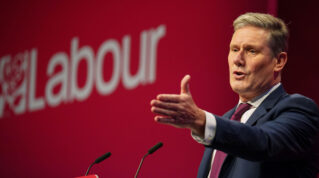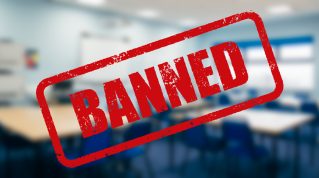The government has promised to collect VAT from parents who pre-pay private school fees from today in a bid to avoid Labour’s planned end to the tax break.
Policy documents, published today, have also confirmed that pupils with education, health and care plans (EHCPs) which state their needs can’t be met in the state sector will be exempt.
Ministers believe this “will put private schools on a level playing field with many other suppliers of education services”.
Here’s what you need to know…
1. VAT changes from January 2025
All education services and vocational training supplied by a private school for a charge “will be subject to VAT at the standard rate of 20 per cent” from January 1. Boarding services will be impacted in the same way.
The stated “policy intention” is for nurseries to remain exempt, with only the fees of children in the first year of primary in a private school upwards taxable.
Any fees paid from today (July 29) “pertaining to the term starting in January 2025 onwards will be subject to VAT”.
2. ‘Retrospective’ VAT on pre-paid fees
It means any advance fees paid from today will be taxed. The government will legislate “with retrospective effect”.
This will “protect Exchequer revenue by allowing HMRC to collect VAT incurred on fees paid in the period between the date this policy is announced” and it receiving royal assent.
It will also ensure parity “between parents and carers who may otherwise seek to pay multiple years’ worth of fees” now and those for whom that “is not a viable option”.
“HMRC stands ready to challenge the validity of such payments and will seek to collect VAT on those fees where it is due. Indeed, the government is committed to tackling tax avoidance … [and] HMRC will be carefully scrutinising the detail of these schemes to ensure that schools pay the correct VAT.”
3. ‘Connected bodies’ also charged…
Other organisations could be hit if they provide “education or vocational training at a private school”.
This will happen if they are “closely bound to one another by financial, economic and organisational links”, they are “connected” within the meaning of the Corporation Tax Act 2010 or if the “main purpose” of their arrangement is to avoid paying VAT.
4. …But other services not hit
The government said it “recognises that other goods and services closely related to education, such as school meals, transport, and books and stationery, are integral”.
As a result, these “closely related” goods and services will remain exempt.
“This reflects that the government considers the risk of schools artificially assigning greater value to closely related goods and services…to limit the amount of VAT they are charging…to be low.
“HMRC will challenge any school who seeks to avoid their full VAT liability in this, or any other, way.”
Any before or after-school clubs “that just consist of childcare and that do not fall within the definition of education” will also remain exempt.
5. 20% fee hike ‘not expected’
The government “does not expect fees to go up by 20 per cent as a result of this policy change”, as it thinks private schools will instead take steps to “minimise” increases.
Like all VAT-registered businesses, private schools will be able to reclaim the VAT they pay on “goods and services used in the production of their taxable supplies”.
Taking this into account, ministers believe they will liable for VAT amounting to about 15 per cent of their fee income.
Ministers also think the number of pupils who may switch schools due to increased fees will “represent a very small proportion of overall” numbers. It is “confident” that there will not be “a significant impact” on the state system.
6. Councils to claw back SEND charges…
Where it has been identified in a pupil’s education, health and care plan (EHCP) that they would be best served outside the state sector, they may be placed in a private school.
In these cases, the local authority is responsible for identifying and funding the special needs child’s place.
But under the changes they will be able “to reclaim the VAT they are charged on the fees of these pupils” through a government refund scheme.
The documents stated that this ensures parents with a council-funded place “will not be impacted”.
However, VAT will be applied to the fees of pupils with SEND whose parents have chosen to send them to a private school but “their needs could be met in the state sector”.
7. …but unclear how business rates will hit SEND
Private schools that are charities “will no longer be eligible to claim charitable rates relief and will be required to pay their full business rates liability” from April 2025.
Government papers added: “However, the government recognises some pupils have special educational needs that can only be met in a private school.
“Therefore, the government will consider how to address the potential impact of these changes in cases where private school provision has been specified for pupils through an EHCP.”
It will “engage with schools before setting out a final proposal in due course”.
8. Legislation coming in the autumn
Following a consultation, ending on September 15, on the VAT legislation, government “may make technical amendments…to ensure that it works as intended”.
The introduction of these changes will be confirmed at the budget at the end of October, before being included in a finance bill expected to come into force on January 1.
The business rates tweaks will be included in a local government finance bill, which is intended to take effect from April 2025.
Changes to VAT will impact private schools “across the UK”, while the business rates adjustments will only impact those in England as the “policy is devolved”.














Our school is going to ask teachers to take a pay cut to reduce the chances of redundancy to keep the school open. Would you rather have a pay cut or redundancy?
Rewinding back to the General Election campaign, as shadow Chancellor Reeves said ‘We’re not going to have a retrospective tax.’ She also heavily implied there would not be a mid-year adjustment: ‘these changes would be in our first budget, but they would come in after that, not retrospectively.’ Labour have just announced a mid-year change that is retrospective.
Meanwhile, Starmer is going around saying that independent schools can avoid raising fees by making efficiencies because state schools have shown how easy it is to reduce costs as the unit of resource has fallen in real terms. Assuming the VAT policy does generate more revenue (which remains unclear), why give it to state schools? They can obviously manage without it, right?
Starmer is also saying that ending a tax break is not a tax rise. So reducing tax breaks on the teachers’ pension scheme (goodbye 25% tax free lump sum) wouldn’t be a tax rise either, would it? Likewise capital gains on the sale of your home or including it in inheritance tax wouldn’t be a tax rise.
The budget is 30th October and the tax changes are coming in January. Merry Christmas and Happy New Year.
It should also be noted the government couldn’t do this if we were members of the EU as their rules specifically exempt from VAT the provision of children’s or young people’s education, school or university education, vocational training or retraining.
It is further interesting to note that Bridget Phillipson campaigned to remain in the EU and is in favour of another referendum, yet she is content to use the freedoms of being outside the EU to continue her crusade of class warfare against private schools, something she couldn’t do if she had her wish of remaining or rejoining the EU – sheer hypocrisy!
https://www.bridgetphillipson.com/news/2019/01/28/my-constituency-voted-to-leave-but-im-still-backing-another-referendum/
https://amp.theguardian.com/commentisfree/2019/jun/02/constituency-voted-leave-labour-oppose-brexit-sunderland